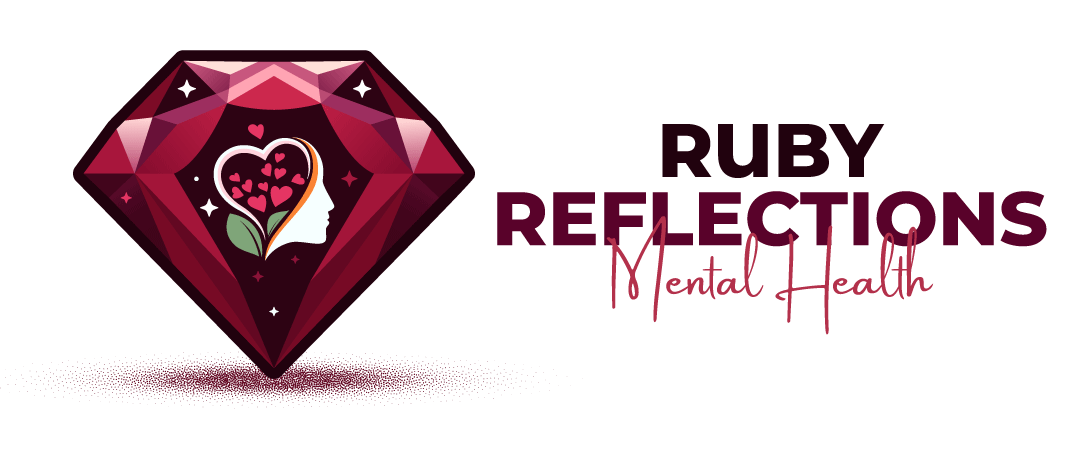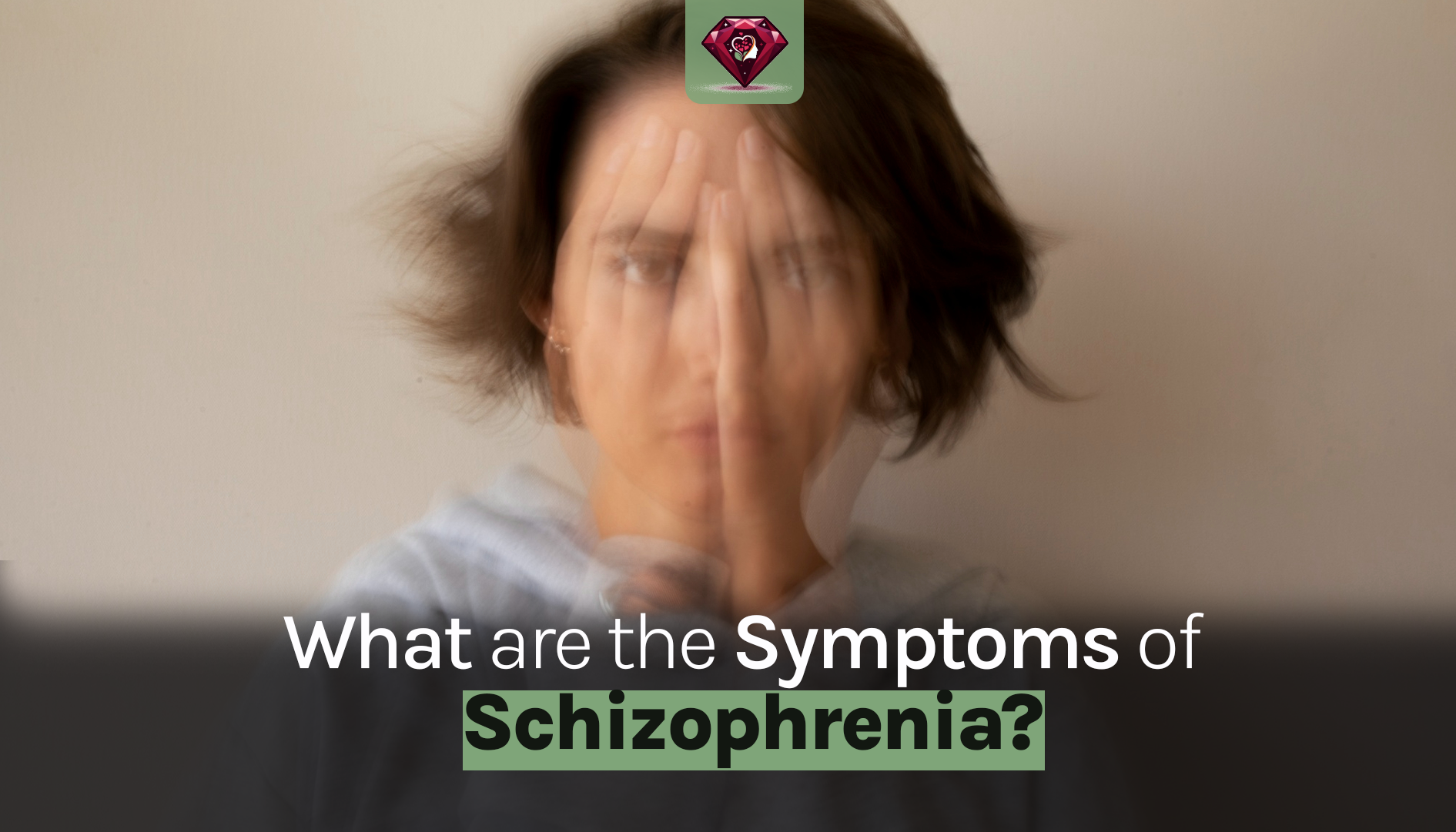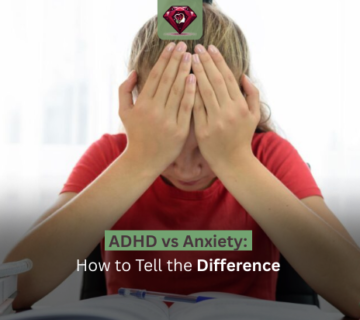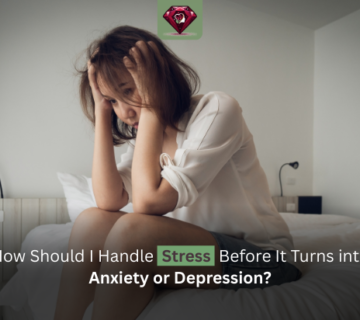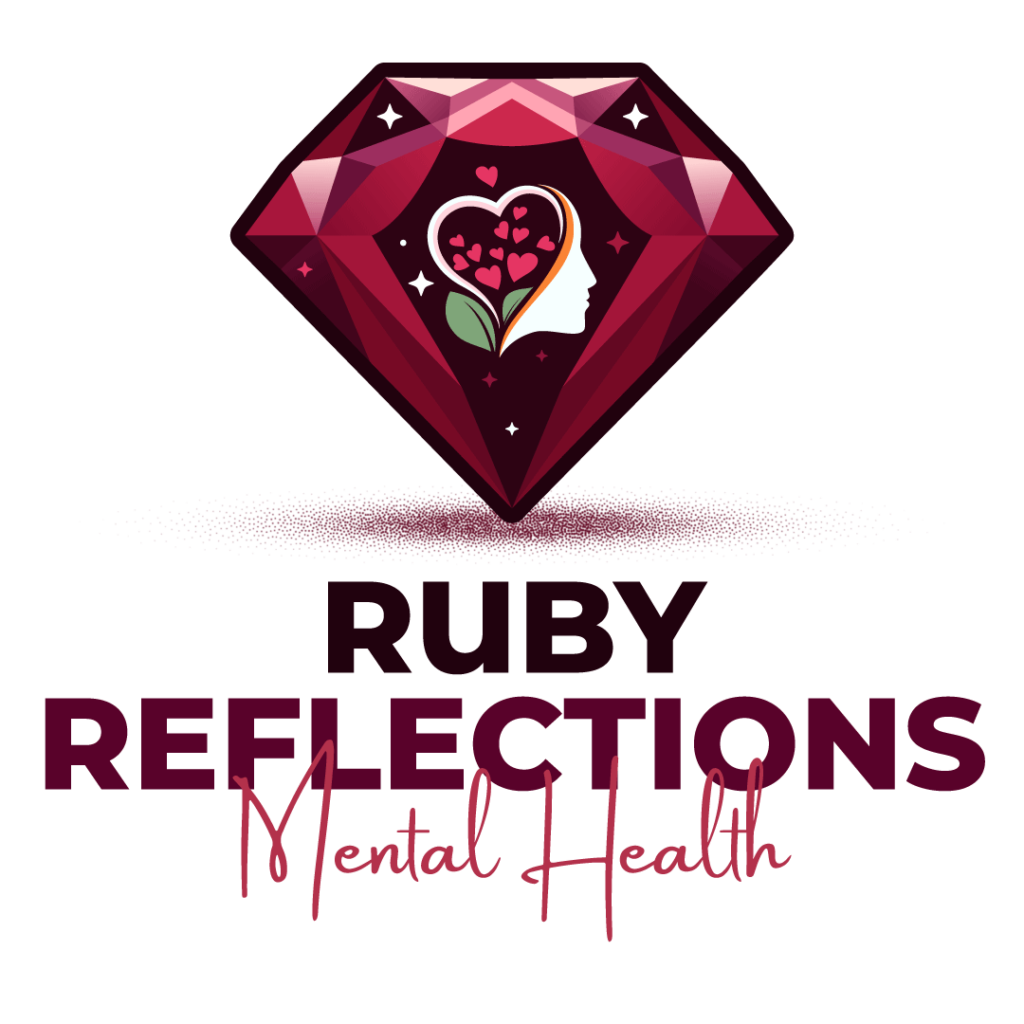Schizophrenia is a mental illness that impacts the cognitive, emotional, and behavioral aspects of a person. It is hard to understand, creating fear in the affected people and their family members.
We will explain what are the symptoms of schizophrenia are, how to spot them early, and ways to support someone with this condition.
We will discuss the methods for stopping the deterioration of schizophrenia. Also, we’ll answer common questions. Let’s start by understanding the basics!
Your mental health journey deserves care and hope. Let Ruby Reflections Mental Health guide you. Contact us today.
What are the Symptoms of Schizophrenia?
Schizophrenia is a turbulent journey. Daily life brings waves of challenges. These signs are categorized into three primary groups:
Positive Symptoms
- Sensing voices or sights that are imaginary (hallucinations).
- Believing incorrect things (delusions), such as feeling watched.
- Speech that is unclear or thoughts that are difficult to organize.
Negative Symptoms
- Lack of motivation for daily tasks.
- Avoiding friends or family.
- Showing little emotion, such as a flat voice or expression.
Cognitive Symptoms
- Struggle to concentrate or choose.
- Forgetting things easily.
You should urge a person who displays these symptoms to visit their doctor. Getting help at the beginning of a problem produces real and meaningful improvements.
Early Signs of Schizophrenia in Females
Schizophrenia can affect both males and females because schizophrenia in women may look different from that in men. Specifically, it is the case that women tend to have generally milder symptoms and that their development comes later in their 20s and 30s. Here are a few ways to help:
- Sudden mood swings or irritability.
- Trouble sleeping or eating.
- Pulling away from social activities.
- They believe they have special powers.
Women show increased susceptibility to developing schizophrenia, together with anxiety disorders. The development of nervousness and paranoid feelings becomes a possible outcome. The earlier families detect schizophrenia symptoms in women, the more they can access appropriate assistance.
Can Drugs Cause Schizophrenia? Understanding the Risks
Substances don’t trigger schizophrenia. Nevertheless, they can provoke signs in individuals who are already vulnerable. Cannabis and LSD can induce visions and anxiety.
The prevention of schizophrenia requires people to stay away from drug abuse. Early prevention becomes highly vital during the teenage years and young adult stage.
Stages of Schizophrenia: From Early to Late
Schizophrenia emerges over time. It usually develops in stages.
Early Stage
Pay attention to minor alterations in behavior patterns. Signs of depression can be small. You might see lower grades or lose interest in hobbies you once enjoyed.
Active Stage
The illness becomes evident through hallucinations and delusions.
Recovery Stage
People handle their symptoms successfully through treatment to maintain fulfilling lives.
Learning the stages of schizophrenia helps families prepare and seek help when needed.
How to Prevent Schizophrenia: Tips for Reducing Risk
Despite the lack of certain strategies against schizophrenia, preventive steps exist that reduce its risk factors.
- People must stay abstinent from drugs and alcohol throughout their life cycle, yet this avoidance is most critical during the adolescent years.
- The reduction of stress happens when you maintain regular contact with your loved ones and friends.
- Seek treatment at the first indication of schizophrenia in female or male patients.
- Nourish your mind with healthy eating and exercise; it’s brain-building magic.
A healthy lifestyle cannot promise the prevention of schizophrenia, but it will enhance mental wellness.
Complications of Schizophrenia: What Happens Without Help?
If schizophrenia goes untreated, it will generate fatal complications such as:
- Isolation or homelessness due to trouble working or studying.
- Depression or suicidal thoughts.
- Health problems from poor self-care.
Therapy, medication, and support groups can help prevent these problems.
Symptoms of Schizophrenia in Elderly Adults
Schizophrenia might appear like dementia or depression in elderly individuals. It has specific signs that set it apart.
- Increased paranoia (e.g., distrusting caregivers).
- They speak to themselves in addition to experiencing visual disturbances.
- The patient abstains from food intake and medicates himself.
The management of these symptoms requires gentle care with scheduled medical check-ups for elderly patients.
Trauma and Schizophrenia: Are They Linked?
Medical evidence shows that trauma and schizophrenia exhibit links between them. Experience of childhood trauma through abuse or loss tends to elevate an individual’s chances of developing schizophrenia throughout adulthood. Therapy allows people to understand trauma while diminishing the trauma’s adverse effects.
Biological Causes of Schizophrenia: What Science Says
Researchers believe biological causes of schizophrenia include:
- Genes: A family history raises the risk.
- Brain chemistry: Imbalances in chemicals such as dopamine.
- Pregnancy issues: Infections or poor nutrition during pregnancy.
Doctors use knowledge of genetic and non-genetic causes to develop improved treatment methods, even though genetics cannot be altered.
Schizophrenia and Anxiety: A Double Challenge
Many living with schizophrenia also contend with the shadow of anxiety. This unwelcome guest can amplify symptoms, sending waves of panic or fear crashing in. However, hope shines through with treatments like counseling and relaxation techniques, which can help navigate the storm and ease both minds.
Supporting Someone with Schizophrenia
If a loved one has schizophrenia:
- Listen without judgment.
- Help them stick to treatment plans.
- Learn about the condition together.
Small acts of patience and love make a huge difference!
Final Thoughts
A fundamental step to obtaining assistance for yourself or others consists of understanding schizophrenia indicators. People cannot always stop schizophrenia from developing. Taking immediate action alongside offering support may result in recovery despite the circumstances. You should contact a doctor if you detect initial symptoms of schizophrenia in female or male patients or seniors. Everyone deserves care and hope!
FAQs
Q: At what age does schizophrenia start?
A: Teens to 30s. Women may start later.
Q: Can kids get it?
A: Rare. Teens might hear voices or act angry.
Q: Is it caused by bad parents?
A: No. It’s a brain issue, not parenting.
Q: How to prevent it?
A: Avoid drugs, stay healthy, and talk about stress.
